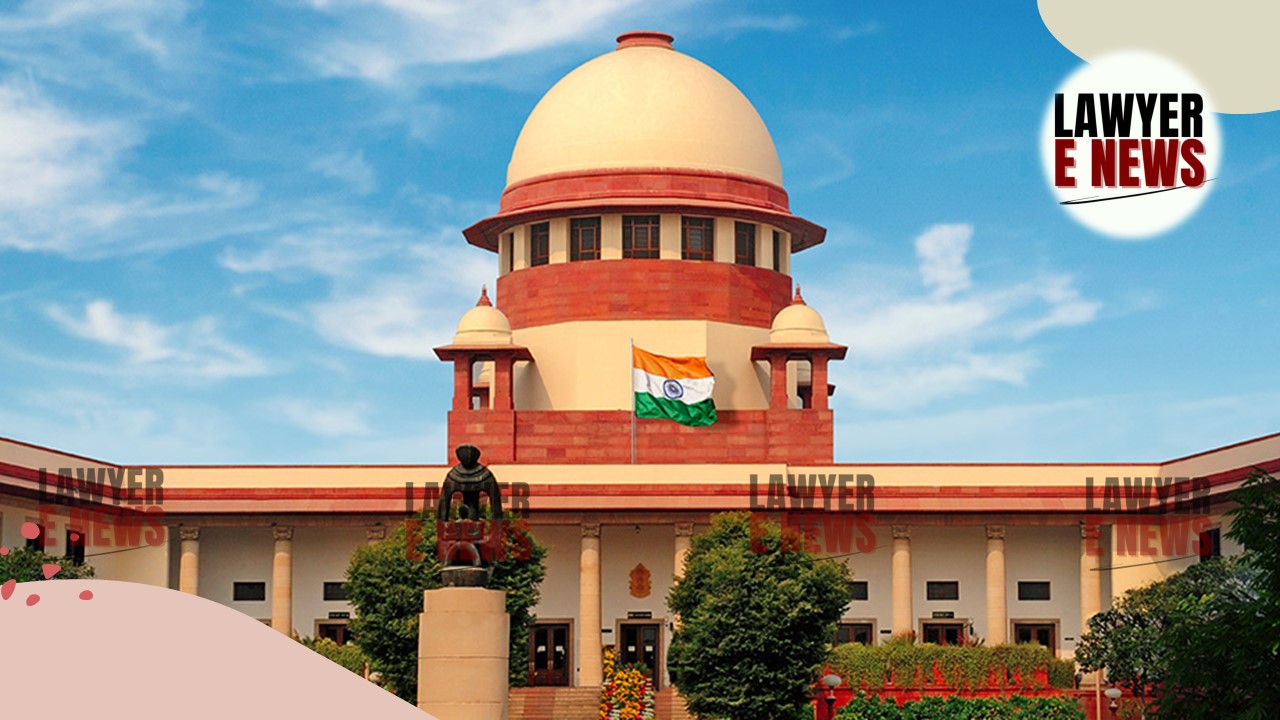-
by Admin
15 February 2026 2:36 AM



"Proclamation Under Section 82 CrPC Ceases to Operate Once the Purpose is Achieved," Supreme Court quashed the appellant’s designation as a proclaimed offender under Section 82 of the Code of Criminal Procedure, 1973 (CrPC) and dismissed the proceedings under Section 174A of the Indian Penal Code (IPC). The Court emphasized that the proclaimed offender status cannot subsist once the accused is acquitted of the primary offence and no longer requires court appearance.
A bench comprising Justice C.T. Ravikumar and Justice Sanjay Karol held that while Section 174A IPC creates an independent offence for non-compliance with a proclamation, proceedings under it can be terminated if the primary offence is resolved or acquitted. The judgment sets a precedent for interpreting the interplay between procedural laws and penal consequences in cases involving proclaimed offenders.
The Court reiterated that the purpose of a proclamation is to secure the presence of an accused in pending proceedings. Once the accused is acquitted, the proclamation ceases to serve its purpose.
“Once the purpose of attaching the proclaimed offender status is achieved or rendered irrelevant, such status must be nullified,” the bench observed.
Citing Kartarey v. State of U.P. (1976) and Vimlaben Ajitbhai Patel v. Vatslaben Ashokbhai Patel (2008), the Court clarified that a proclamation is procedural and should not persist after the accused no longer requires court appearance.
Section 174A IPC criminalizes non-appearance in response to a proclamation under Section 82 CrPC. The Court held that while the offence under Section 174A IPC is standalone, its prosecution depends on the circumstances of the primary case.
“Section 174A IPC is a substantive offence. However, if the primary offence for which a proclamation was issued is resolved, the proceedings under Section 174A can be closed,” the Court clarified.
The judgment drew support from rulings such as Mukesh Bhatia v. State (NCT of Delhi) (2022) and Sameena v. State GNCT of Delhi (2022), emphasizing that the penal consequences of Section 174A IPC cannot operate in a vacuum.
The Punjab and Haryana High Court had refused to quash the appellant’s status as a proclaimed offender and the Section 174A IPC proceedings, despite his acquittal in the primary offence under Section 138 of the Negotiable Instruments Act, 1881.
The Supreme Court found this refusal unjustified, stating: “The High Court failed to consider the legal effect of the appellant’s acquittal on his proclaimed offender status and proceedings under Section 174A IPC.”
The Court further noted that monetary disputes between the parties had been fully settled, rendering any continued criminal proceedings redundant.
The case arose from a dispute over a business contract where Daljit Singh, the appellant, was accused of issuing a cheque that subsequently bounced. A complaint was filed under Section 138 of the Negotiable Instruments Act, 1881.
Despite his absence at certain hearings, the appellant later clarified that the monetary disputes had been resolved, and he was ultimately acquitted of the Section 138 offence.
However, during the pendency of the case, the appellant was declared a proclaimed offender under Section 82 CrPC and prosecuted under Section 174A IPC for failing to respond to the proclamation.
The appellant challenged these proceedings in the High Court under Section 482 CrPC, but his plea was dismissed. Aggrieved, he approached the Supreme Court.
The Court held that the appellant’s proclaimed offender status under Section 82 CrPC had become untenable due to his acquittal in the primary offence. It clarified that a proclamation serves no purpose once the accused no longer requires court appearance.
The Court ruled that while Section 174A IPC creates a substantive offence, the prosecution under it cannot continue if the primary offence is resolved. The bench directed the closure of all proceedings under Section 174A IPC against the appellant.
The Court criticized the High Court for failing to exercise its inherent powers under Section 482 CrPC to quash redundant proceedings. The judgment emphasized that the High Court’s supervisory jurisdiction must be used to prevent the abuse of process and secure the ends of justice.
The Supreme Court allowed the appeal, quashing the appellant’s proclaimed offender status and all related proceedings under Section 174A IPC. This judgment underscores the principle that procedural tools like proclamations cannot outlive their purpose and reaffirms the High Courts’ responsibility to exercise their inherent powers to ensure justice.
Date of Decision: January 2, 2025
